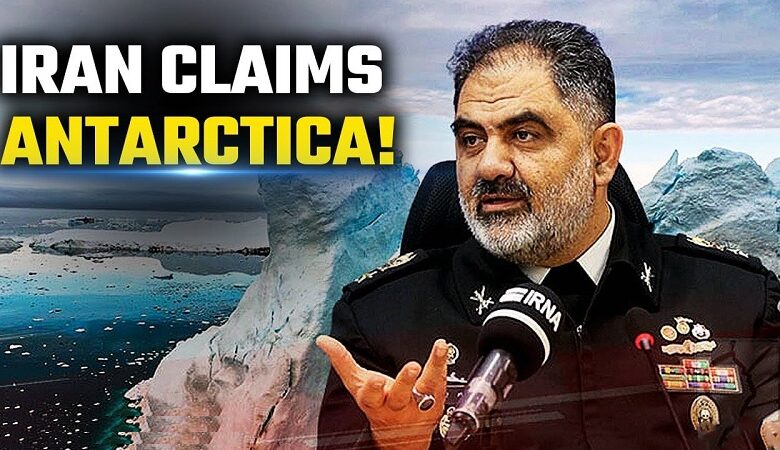Iran’s Bold Claim Over Antarctica: A Challenge to International Order

Iran’s Navy Commander, Rear Admiral Shahram Irani, has made a bold statement that has captured global attention: Iran intends to claim sovereignty over Antarctica and plans to conduct military and scientific operations there. This declaration directly contravenes the Antarctic Treaty of 1959, an international accord dedicated to maintaining Antarctica as a zone of peace and scientific research.
The Antarctic Treaty, signed by twelve nations including the United States and the United Kingdom, establishes Antarctica as a demilitarized zone reserved for peaceful and scientific activities. Iran, which is not a signatory to the treaty, has nonetheless announced its intentions to assert control over the continent. This move has sparked widespread concern and has been seen as a direct challenge to international norms and the Biden administration.
Rear Admiral Irani’s televised pronouncement comes amidst heightened global tensions. Recent attacks by Iranian-backed militias in Jordan, resulting in the deaths of three U.S. soldiers, have already strained relations. This latest claim over Antarctica is viewed as an extension of Iran’s aggressive stance on the global stage.
The U.S. State Department has quickly responded to Irani’s claims, clarifying that Iran’s recently unfrozen funds held in Qatar, amounting to $6 billion, are earmarked solely for humanitarian purposes such as food, medicine, medical devices, and agricultural products. Despite this, Iranian President Ebrahim Raisi has indicated that his regime will use the funds “wherever we need it,” further escalating tensions.
The prospect of Iran establishing a military presence in Antarctica has significant implications. If Tehran were to succeed, it would not only breach the Antarctic Treaty but also disrupt the strategic status quo. A military base in Antarctica could hinder scientific research, particularly in critical areas such as climate change and marine biology, and pose a security threat to other nations.
Experts like Jennifer Dyer, a retired U.S. Naval Intelligence commander, have emphasized the legal ramifications, stating that “raising the flag at the South Pole doesn’t carry any implications in international law.” Dyer further explained that any actions by Iran would not be recognized by other nations, particularly the Antarctic Treaty signatories, which include powerful countries such as the United States, Russia, and nearby nations like Chile and New Zealand.
This development also underscores the broader geopolitical strategies at play. Iran’s assertive actions are not isolated incidents but part of a larger pattern of challenging international norms and expanding its influence. The global community must navigate these tensions carefully, balancing diplomatic responses with the need to uphold international treaties and maintain peace.
The Antarctic Treaty has long been a symbol of international cooperation and dedication to science. The treaty’s success lies in its ability to keep Antarctica free from military conflict and focused on research that benefits humanity as a whole. Any breach of this agreement threatens to undermine these principles and set a dangerous precedent.
Furthermore, the potential disruption to scientific research in Antarctica is a significant concern. The continent is crucial for studying climate change, with its unique environment providing valuable data that helps scientists understand global warming and its impacts. Militarization of the region could hinder access to essential research sites and compromise ongoing studies.
In conclusion, Iran’s claim over Antarctica presents a serious challenge to international order and the principles of the Antarctic Treaty. The global community must stand firm in upholding the treaty and ensuring that Antarctica remains a place dedicated to peace and science. Diplomatic efforts, backed by a strong commitment to international law, are essential to address this provocative stance by Iran and to preserve the integrity of one of the last untouched frontiers on Earth.






